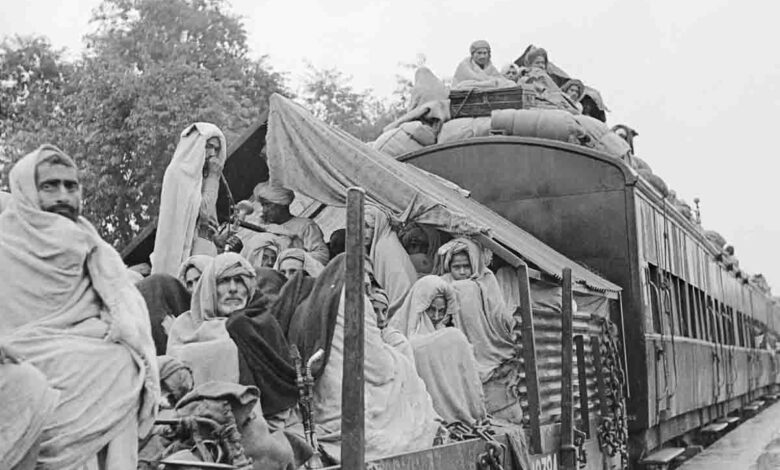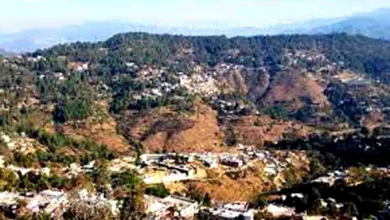AICC’s fateful Partition meet: What happened inside?

VIEWPOINT
 Romit Bagchi
Romit Bagchi
One Sunday morning, I was turning the pages of late Jaswant Singh’s controversial book: Jinnah- India- Partition- Independence. One chapter drew my particular attention. It was about the eventful All India Congress Committee meeting held in Delhi on June 14 and 15, 1947 during which the Congress ratified the Partition Plan mooted by Lord Mountbatten. All the bigwigs of the party attended it and many presented their views either in favour of or against the scheme. Among the major voices of dissent were those of Purushottam Das Tandon and the leader from Sindh Chothram Gidwani. They minced no words while taking the leadership to task for supinely accepting the Mountbatten Plan without putting up even the semblance of a fight. Their fiery speeches courted applause from the majority of the party members.
But what were the top leaders doing? Maulana Abul Kalam Azad quite intriguingly sat in a chair in a small corner of the room, puffing away his endless cigarettes. He chose to maintain a studied silence on these two critical days. The Congress president during that portentous period of India’s history Acharya JB Kripalani sat sleepily- a picture of weary indifference. Mahatma Gandhi saw him in that drowsy state and referred to him as the bone-tired president. This prompted the socialist leader Ram Manohar Lohia to nudge him out of his somnolence. Kripalani sat up and said he was having a bad headache. Khan Abdul Ghaffar Khan now stood up and spoke briefly. While venting his deep sorrow and consternation with his comrades having accepted the Partition, he pleaded for a small mercy: inclusion in the plebiscite slated in the North West Frontier Province of the alternative of independence alongside the two other choices: accession to India or Pakistan. Jayaprakash Narayan too chose to confine his speech to a few sentences, voicing his anguish against the proposed Partition. He though appeared to have completely given in to the fait accompli.
Now Mahatma Gandhi stood up. While speaking, he turned to Pandit Nehru and Sardar Patel and said they had not informed him about the Partition Plan before committing themselves double quick to it. Cut to the quick, Nehru interrupted Gandhi and said emotionally he had kept him fully informed. Gandhi shook his head and repeated he had no inkling of the Partition scheme. Now taken aback, Nehru softened his earlier rigid observation and said that as he was far away from Delhi in Noakhali in Bengal, he could not have described the details but broadly written to him about the Partition Plan. Lohia was, however, unconvinced. He was severely critical in his observation in his insightful book ‘Guilty Men of India’s Partition.’ He wrote that Nehru might have written vague letters doling out hypothetical and insubstantial information. In his opinion, Nehru and Patel had obviously decided between themselves not to scare Gandhi away before the deal was finally resolved upon. He further wrote that Nehru and Patel had been aggressively offensive towards Gandhi at this meeting. “I had a few sharp exchanges with both of them…What appeared to be astonishing then, as now, though I can today understand it somewhat better, was the exceedingly rough behaviour of these two chosen disciples towards their master. There was something psychopathic about it. They seemed to have set their heart on something and whenever they scented that Gandhi was preparing to obstruct them, they shouted violently,” he wrote.
While addressing the meeting on the second day, Nehru asserted that the most urgent task at the moment was to arrest the swift drift towards anarchy and chaos by the establishment of a strong Central government. He rejected the view outright that Congress had been coerced into surrendering to the Muslim League’s riot-mongering belligerence. In the same breath, he, however, admitted that they were indeed rattled by the prevailing madness and partition was better than the endless carnage of innocent citizens.
Then Sardar Patel stood up. Lending his unflinching support to the Partition Plan, he said that no airy-fairy formula could work amidst the communally poisonous atmosphere. Pleading for pragmatism, he said that instead of chasing a chimera, they should rather focus themselves on developing what they would get as India according to her cultural genius, leaving the rest for the League to govern. Then, in his presidential address, Kripalani recounted the horrors unleashed by the communal elements in the two communities. He said he had seen a well where women with their children, 107 in all, had thrown themselves to save their honour. In another place-a place of worship, 50 young women had been killed by their men folk for the same reason. He further said he had seen heaps of bones in a house where 307 persons, mainly women and children, had been locked up and then burnt alive by an invading mob. He then admitted that it was indeed fear that had propelled them into giving in to the Partition Plan. But it was not a nervous weakness, a weak-kneed capitulation before the macabre narratives of massacres but a chilling apprehension that if they were to let this state of things go on they might be reduced to cannibalism and even worse.
When the time came for the members to approve the resolution Nehru had introduced on the Partition Plan, Lohia suggested an amendment strongly repudiating the Two-Nation Theory while affirming that India was indivisibly one nation as Nature and culture had fashioned it over millennia of years and no human agency could alter that shape and thwart India’s future destiny. Gandhi supported it. But Nehru exploded, saying that the suggested amendment manifested an obsession with Jinnah’s malicious theory. In exasperation, he asked whether there was any point in calling people, who were flying at each other’s throat, brothers. Undaunted, Lohia cited America’s gory civil war that killed millions of Americans and said that despite that, the Americans never ceased to be brothers.
As tension was mounting up again, Gandhi stood up and said gloomily that rejection of Mountbatten Plan at that juncture would strip the Congress of all its credibility. He reasoned that sometimes a time came in a nation’s life when some unpalatable decisions had to be taken to help history march on for better or worse.
Now it seems futile- akin to crying over spilt milk-to dissect a momentous chapter of history to fix responsibility which is in danger of getting reduced to a vicious witch-hunt with generation of more heat than light, far from an edifying experience. Suffice it to say that all the stalwarts of the country’s freedom movement had accepted the Partition Plan under duress with a heavy heart. No one was happy and a profound sadness lurked in their hearts when the ancient nation celebrated its hard-won freedom that came though at a colossal cost.






